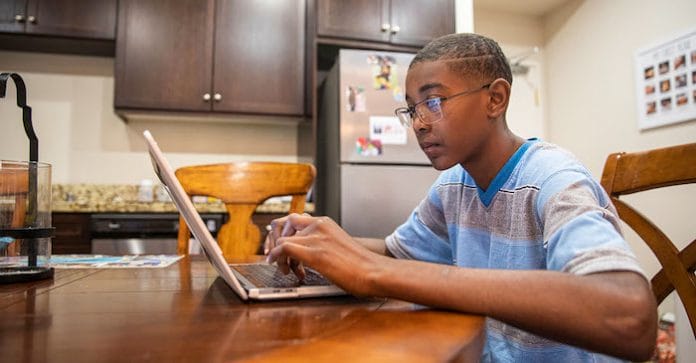
NNPA NEWSWIRE — “Black history is American history, but for too long, the story we have told was insufficient and inadequate,” Gov. Ralph Northam said in a news release. “The introduction of this groundbreaking course is a first step toward our shared goal of ensuring all Virginia students have a fuller, more accurate understanding of our history, and can draw important connections from those past events to our present day.”
by Stacy M. Brown, NNPA Newswire Senior National Correspondent
@StacyBrownMedia
Virginia students now can take an elective course focusing on African American history, Gov. Ralph Northam said on Thursday, Aug. 28.
The new courses are available in 16 of the state’s school divisions, including in Arlington and Prince William counties.
“Black history is American history, but for too long, the story we have told was insufficient and inadequate,” Gov. Northam said in a news release. “The introduction of this groundbreaking course is a first step toward our shared goal of ensuring all Virginia students have a fuller, more accurate understanding of our history, and can draw important connections from those past events to our present day.”
The full-credit course surveys African American history from precolonial Africa through the present day. It introduces students to African American history concepts, including the trans-Atlantic slave trade, the Civil War, Emancipation, Reconstruction, and the civil rights era.
Students will also learn about African American voices, including many not traditionally highlighted, and their contributions to Virginia and America’s story.
According to the news release, the course is expected to challenge students to explore primary and secondary sources documenting the African American experience.
It includes a capstone project requiring students to conduct independent research on a question or problem of their choosing and demonstrate a deeper understanding of African American history.
“We can expect young Virginians to understand the enduring impacts of systemic racism only when they fully understand both the oppression experienced by African Americans and their significant contributions to STEM, the arts, education, law, and advocacy,” said Virginia Secretary of Education Atif Qarni.
“As a history teacher, I know that this course is long overdue and is a first step toward telling a more inclusive story about the past and how it has shaped the present.”
In 2019, Gov. Northam signed an executive order to establish the Commission on African American History Education.
The Commission was charged with reviewing Virginia’s history standards, and the instructional practices, content, and resources to teach African American history in the Commonwealth.
The inclusion of African American history in high school classes in Virginia comes as protests continue in the aftermath of the police shootings of George Floyd in Minnesota, Jacob Blake in Wisconsin, and many others.
It also comes at a time when professional athletes and entertainers have stood in force behind the Black Lives Matter Movement in a push for social justice and all to understand the history of African Americans.
“The full history of Virginia is complex, contradictory, and often untold – and we must do a better job of making sure that every Virginia graduate enters adult life with an accurate and thorough understanding of our past, and the pivotal role that African Americans have played in building and perfecting our Commonwealth,” Gov. Northam stated.
“The important work of this Commission will help ensure that Virginia’s standards of learning are inclusive of African American history and allow students to engage deeply, drawing connections between historic racial inequities and their continuous influence on our communities today.”
Stacy M. Brown is an NNPA Newswire Correspondent


